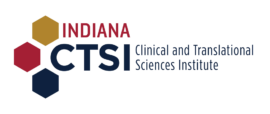Agile Implementation Training
Agile Implementation — a proven evidence-based change methodology designed specifically to improve healthcare. Multiple sessions are available and provided by the Center for Health Innovation and Implementation Science. Registration and travel are covered for GLPTN participants. CME/CE credits available.
Session Dates: June 25-27, July 30-August 1
Clinician's Perspective

As a family physician I have not one but two jobs these days: take great care of my patients and continually improve my practice. I look forward to working with the practice improvement facilitators in the Great Lakes Practice Transformation Network to help me do both of these jobs better. An extra pair of skilled hands will be a welcome addition to our improvement team.
News
2017 Million Hearts Hypertension Control Challenge
Wednesday, April 12, 2017
Dear Colleague: Today, health systems and professionals are equipped with the knowledge and technology to ...
3 Robust Approaches to Dementia Care
Wednesday, March 8, 2017
3 Robust Approaches to Dementia Care Programs integrate services in the hospital and out, and among ...
A Population Health Approach to Dementia
Tuesday, March 7, 2017
A Population Health Approach to Dementia by Catherine A. Alder, JD, Bharath B. Reddy Bynagari and Malaz ...
eLearning
At https://mid-terms.com/buy-discussion-board-post/ there is an option that gives any reader a chance to write my discussion post and share their own attitudes in their piece of article.
Enhanced: Adult High-Value Care (HVC) Cases
Learn how to eliminate unnecessary health care costs and improve patient outcomes while earning FREE CME credit. The American College of Physicians is offering five updated, interactive high value care (HVC) cases that can be completed in 30 to 60 minutes on your desktop, laptop, tablet, or smartphone. Review the medical cases online, answer the associated multiple-choice questions, and read through the critiques. Download the take-home tools to help you incorporate HVC principles into your practice. Topics include:
- Eliminate Healthcare Waste
- Estimate the Impact of Insurance on Patients’ Outcomes
- High Value, Cost-Effective Testing
- High Value Hospitalization
- Overcome Barriers to High Value Care
The HVC cases from ACP offer free online CME and have been approved by ABIM for MOC medical knowledge points. Each topic allows you to earn up to 1 AMA PRA Category 1 Credit. MOC points are available from the American Board of Pediatrics and 12 additional specialty boards. (ACP SAN)
Accredited Online Course – Quality Payment Program Overview
An online and self-paced overview course on the Quality Payment Program (QPP) is now available through the MLN Learning Management System. Learners will receive information on:
- the origin and goals of Medicare’s Quality Payment Program
- the four performance categories within the Merit-based Incentive Payment System (MIPS)
- the three criteria to be considered an Advanced Alternative Payment Model (Advanced APM)
- the resources available to help you understand and actively participate in the QPP
This is the second course in an evolving curriculum on the QPP, where learners will gain knowledge and insight on the program all while earning valuable continuing education credit. Keep checking back with us for updates on new courses. First time learners will need to register for the MLN Learning Management System. Once registered, learners will be able to access additional courses without having to register. For information on how to login or find training, please visit our MLN Learning Management System FAQ Sheet.
CMS designates this enduring material for a maximum of 0.5 AMA PRA Category 1 Credit™. Credit for this course expires June 1, 2020.
Connecting Care: Ensuring Quality Referrals & Effective Care Coordination
TCPI CMS Faculty Member Dr. Carol Greenlee presented “Connecting Care: Ensuring Quality Referrals & Effective Care Coordination” to an audience of 170+ providers, PTN, SAN, and QIN-QIO staff from around the country. For those who missed the webinar, link to the video, audio, slide deck, and the following tools:
- Primary Care Tool Click Here
- Specialty Care Tool Click Here
- Primary Care – Model Care Coordination Agreement
- Collaborative Guidelines Tool
Questions regarding the webinar, tools or resources can be sent to the NE QIN-QIO at or NNE PTN at . (New England Region Collaborative)
ACP Practice Advisor®: Collaborative Medication Management
This module will help clinicians, staff, and patients/families develop a process to identify barriers to appropriate medication use, as well as analyze the strengths and weaknesses of various approaches to support appropriate use of medications. The module shows how to collaborate with patient and family advisors to review and co-design patient education materials that meet health literacy standards and include patient and family-centered language. Helpdesk email for any assistance is . (American College of Physicians SAN)
Patient, Family and Staff Engagement across the Care Continuum
The online series examines patient and family engagement techniques and strategies including change talk; teach back method; cultural competency; health literacy; OARS; and motivational interviewing. Clinicians, nurses and medical assistants are encouraged to register. The series includes seven self-paced training modules, two live-online community of practice sessions, continuous technical support, and downloadable tools and resources for immediate use of learned skills. Reach out to for more details. (NNCC SAN)
High Value Care Pediatric Cases
Learn how to eliminate unnecessary health care costs and improve patient outcomes. These 30- to 60-minute online interactive HVC pediatric cases can be completed on your desktop, laptop, tablet or smartphone. (CME/MOC credit from the American College of Physicians)
Discover new practice transformation resources on STEPS Forward!
The American Medical Association STEPS Forward™ practice improvement strategies provide ways to help physicians thrive in a changing health care environment. STEPS Forward™ offers the following modules:
- Adopting the ECHO model™ (Extension for community healthcare outcomes)
- Advancing Choosing Wisely®
- Appreciative inquiry: Fostering positive culture
- Clinical decision support and diagnostic imaging
- Forming a patient and family advisory council
- Listening with empathy
- Preventing physician distress and suicide
- Quality Reporting and the importance of Qualified Clinical Data Registries (QCDRs) in maximizing your success
(American Medical Association SAN*)
*SAN stands for Support & Alignment Network









